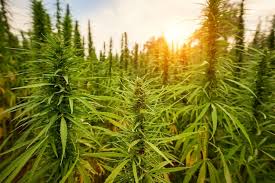
Discovering Weed in Vlorë: The Cannabis Landscape in Albania’s Coastal City
However, beneath the city’s cultural and natural attractions, a more complicated issue persists: the illegal cultivation and use of cannabis on Discover weed in Vlore.
In this article, we’ll explore the cannabis situation in Vlorë, examining the city’s drug laws, the challenges of illegal cannabis cultivation, the public’s shifting attitudes toward cannabis, and what the future may hold for cannabis reform in the region on Discover weed in Vlore.
Cannabis Laws in Albania: Prohibition Across the Board
In Albania, cannabis is illegal, both for recreational and medicinal use. Those caught with cannabis face significant legal consequences. Even small amounts can result in fines, imprisonment, and criminal charges, and penalties are even harsher for those caught trafficking or growing cannabis on Discover weed in Vlore.
The Albanian government has taken a strong stance against illegal drugs, and cannabis is a particular focus. Authorities have conducted numerous operations to dismantle drug trafficking networks and destroy illicit cannabis crops, especially in rural areas. Although the government has made significant efforts to curb these illegal activities, cannabis cultivation remains a widespread problem, and Vlorë, like other parts of Albania, has not been immune to these issues on Discover weed in Vlore.
The Cannabis Industry in Vlorë: A Thriving Yet Hidden Market
Despite the legal prohibitions, cannabis is still a part of Vlorë’s underground economy. In rural and coastal areas surrounding the city, cannabis is often cultivated illegally in secret locations. Cannabis production in these areas is typically hidden from view, with growers using remote sites to evade the attention of authorities.
This makes Vlorë a key point in the country’s broader cannabis economy, even though the cultivation itself happens further inland.
For individuals living in economically disadvantaged areas, illegal cannabis cultivation has been a lucrative alternative to traditional farming.
Changing Attitudes: Is Cannabis Perceived Differently in Vlorë?
However, there has been a shift in attitudes, especially among the younger population, who are more exposed to global trends and the evolving discourse on cannabis use.
Across Europe and beyond, many countries have moved toward decriminalizing or legalizing cannabis, particularly for medicinal use. Albania, with its young and increasingly educated population, is not immune to these changes.
While the push for cannabis reform is still in its infancy in Albania, the younger people of Vlorë, who are more liberal in their views, are starting to advocate for a rethinking of the country’s cannabis laws.
Cannabis and the Economy of Vlorë: A Double-Edged Sword
Cannabis has long been a part of Albania’s informal economy, especially in rural areas. For some communities in and around Vlorë, illicit cannabis cultivation has served as an economic lifeline. In fact, at its peak, it is estimated that illegal cannabis production contributed millions of euros to the Albanian economy.
However, this comes with significant drawbacks. The illegal cannabis trade is often associated with organized crime, corruption, and violence.
By regulating and taxing the cannabis industry, Albania could potentially create jobs, reduce the influence of criminal organizations, and provide a new source of revenue for the government.
The Road Ahead: Will Vlorë See Cannabis Reform?
Medical cannabis, in particular, could be the first step toward broader cannabis reform in the country.
However, full legalization for recreational use is still a long way off. For now, cannabis remains part of the country’s underground economy, with Vlorë playing a key role in the broader drug trade due to its coastal location and strategic position.
Conclusion
Cannabis in Vlorë, like much of Albania, is subject to strict prohibition. However, the ongoing debate over cannabis reform, particularly medical cannabis, reflects changing attitudes and the potential for change in the coming years.
Message Greenleafemporium1@gmail.com “There weed is so well-cured that it practically glows, and when I lit up, the smoke was smooth and flavorful without any harshness, which is exactly what I look for.” Highly recommended local plug his telegram / https://t.me/Greenleafemporium1
“Wow’ they have earned my trust by being consistently reliable, providing top-tier products every time and delivering them on time with no fuss.
I just got my order, and I have to say, the quality of the buds is absolutely top-notch, with a pungent aroma that immediately let me know I was in for a great experience.